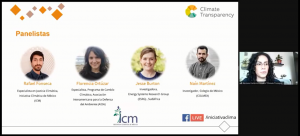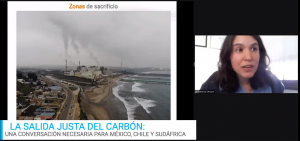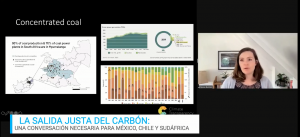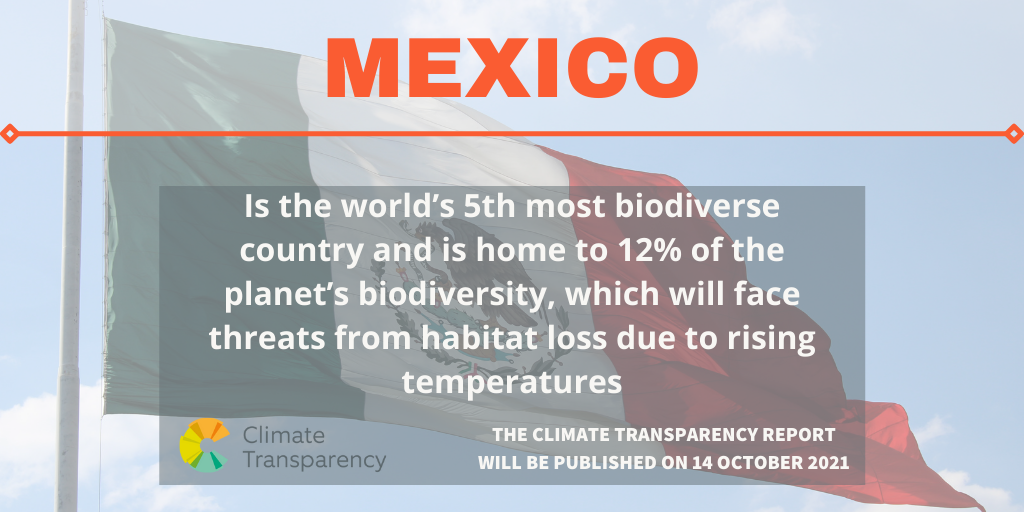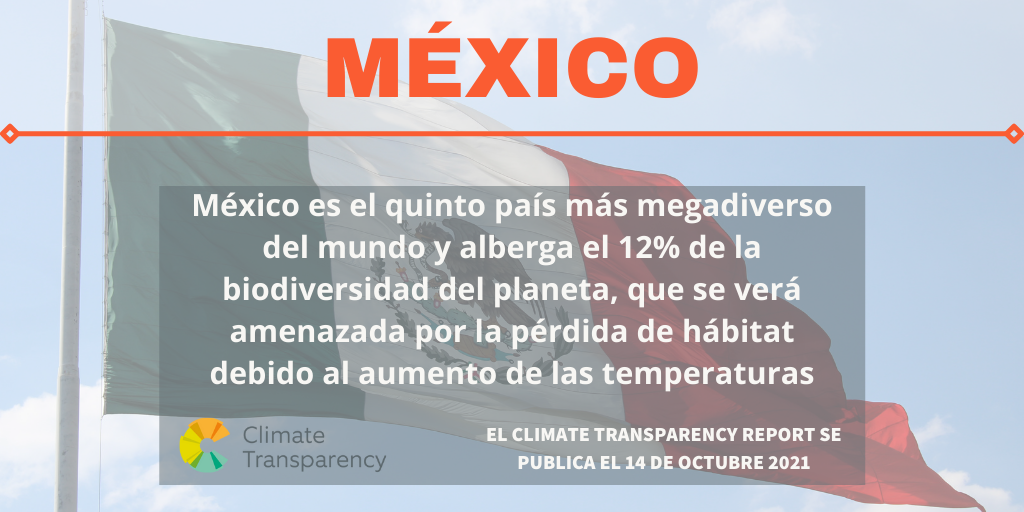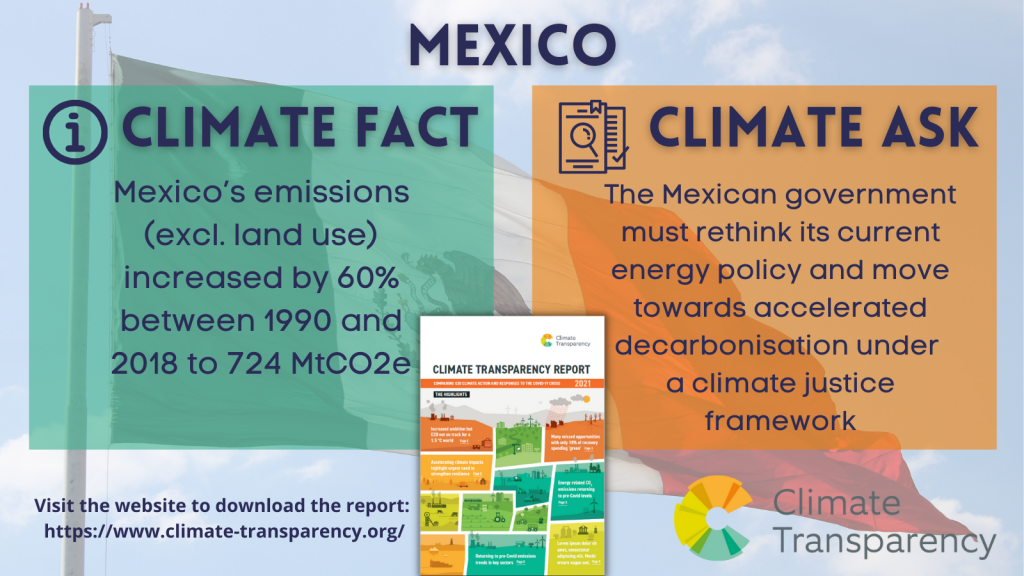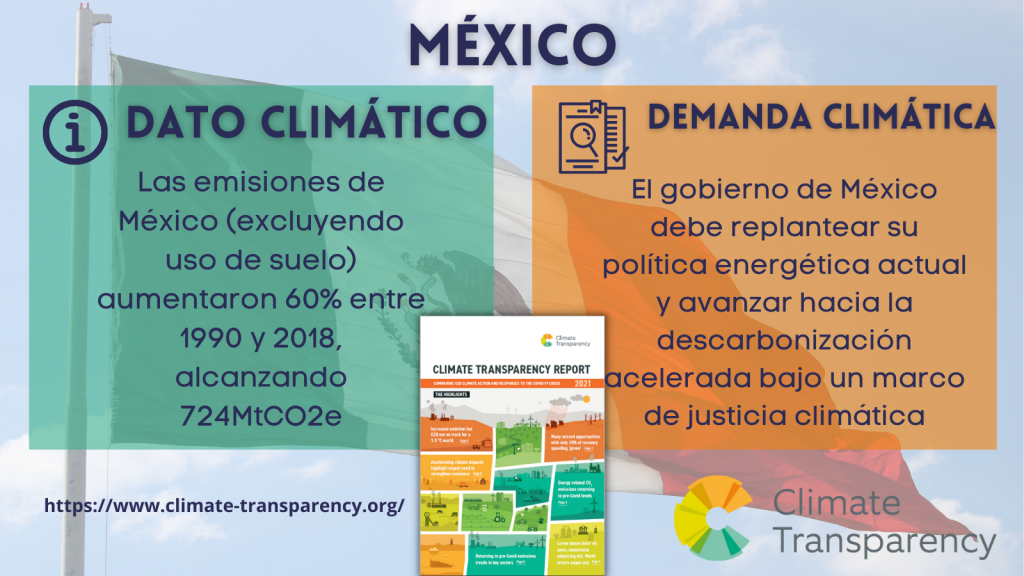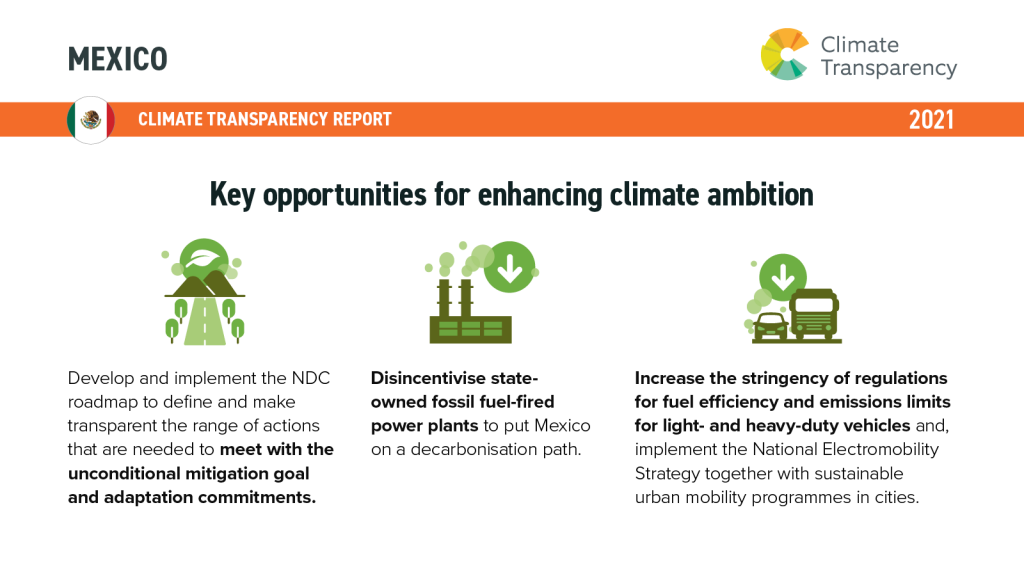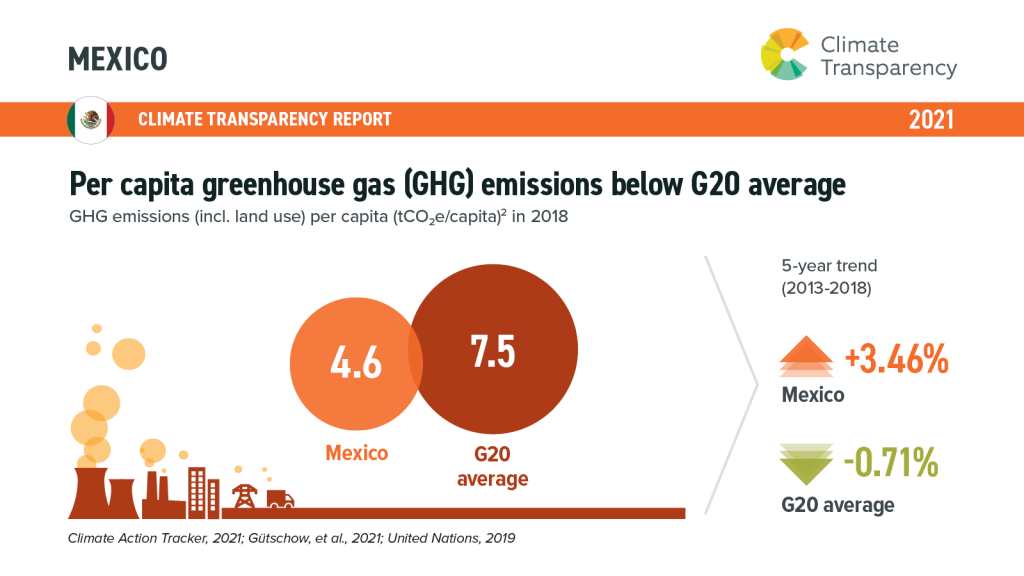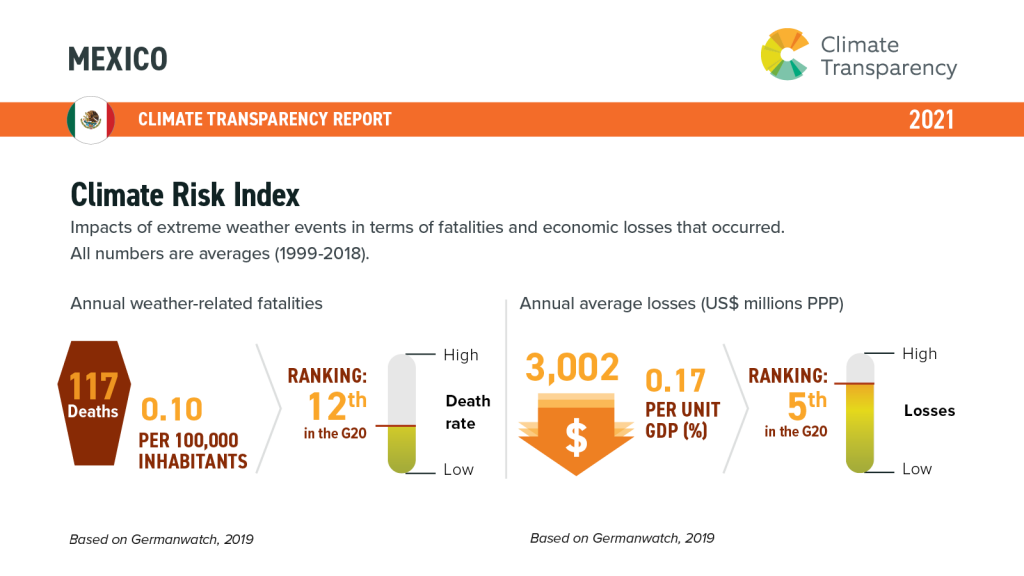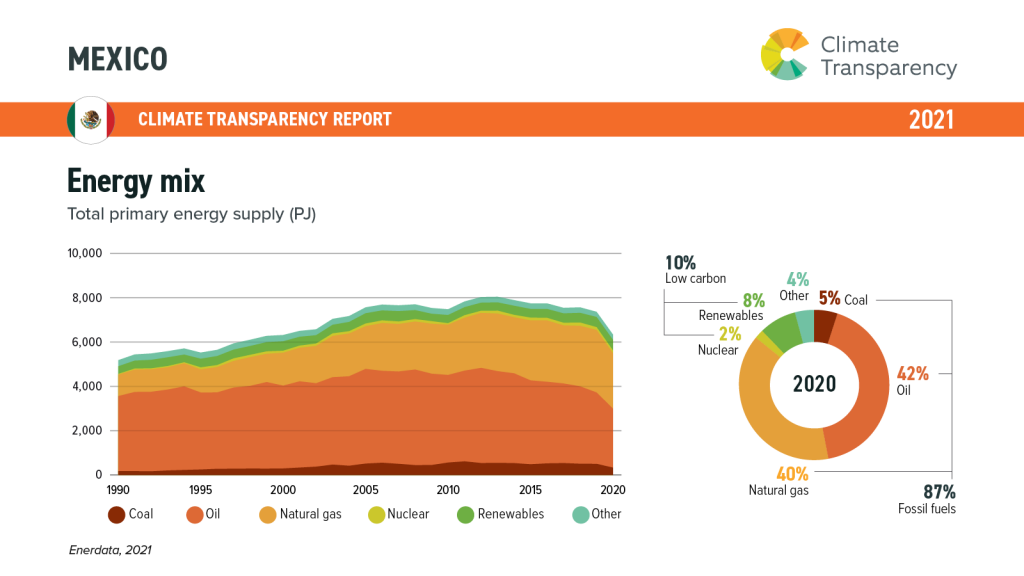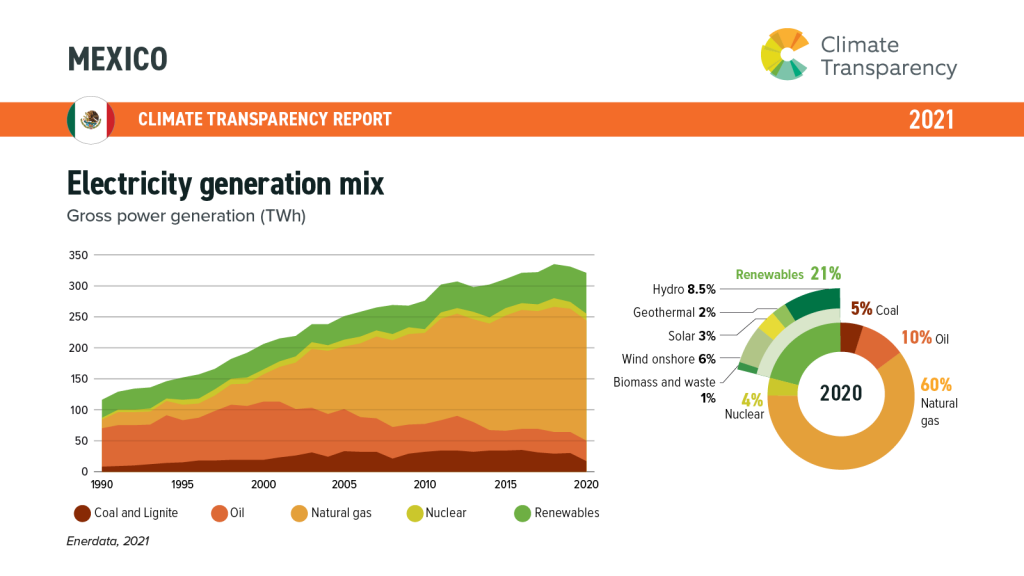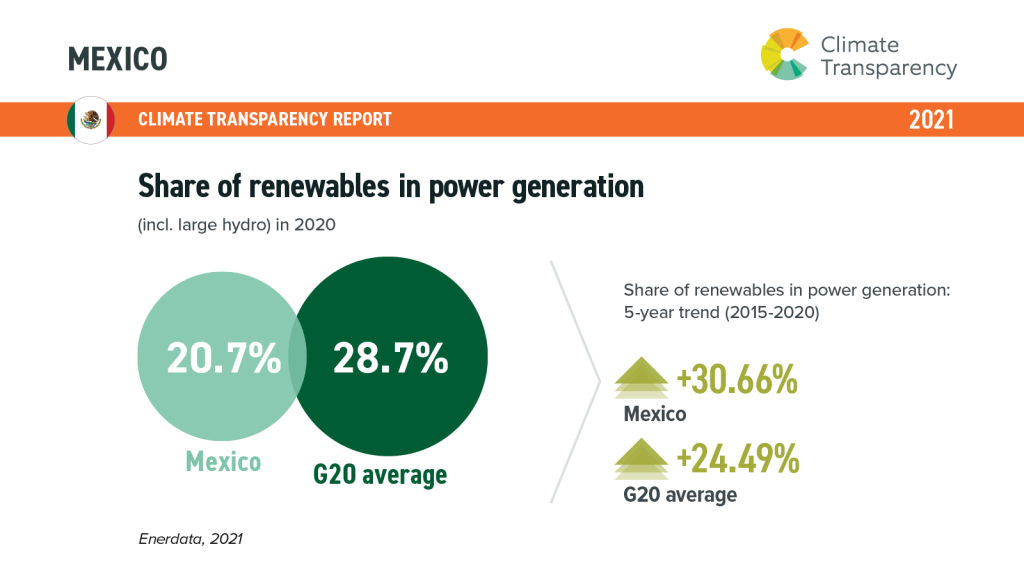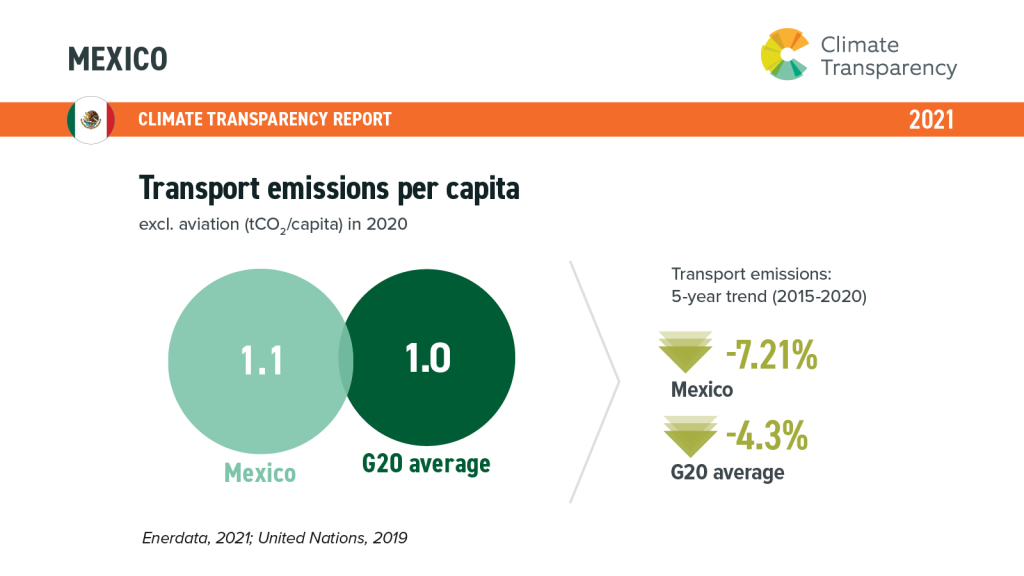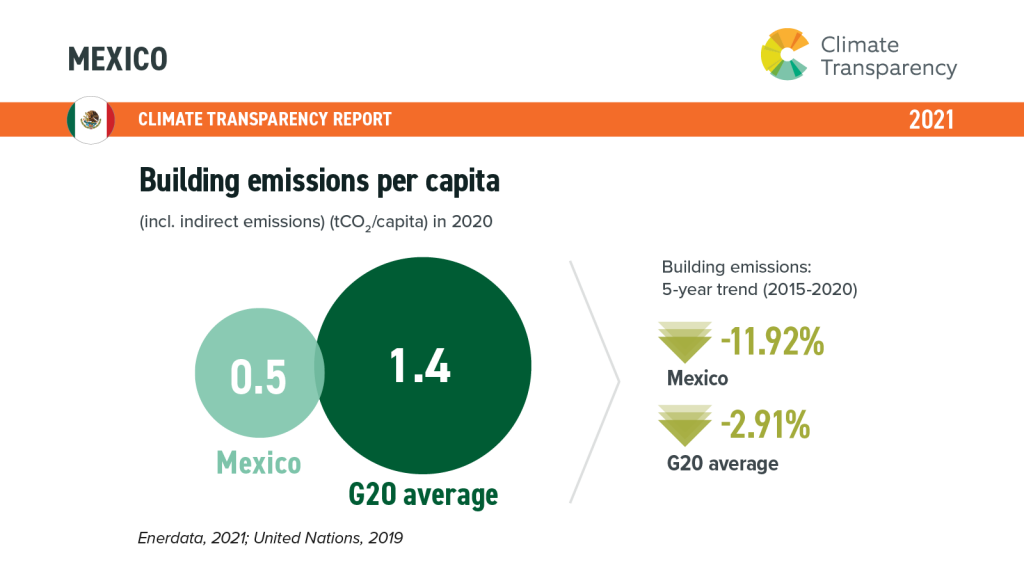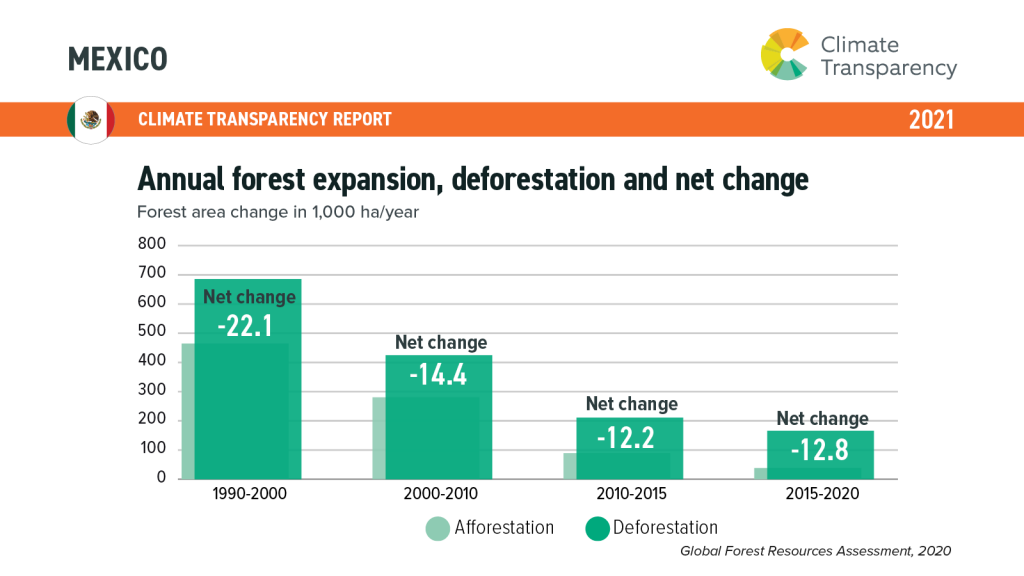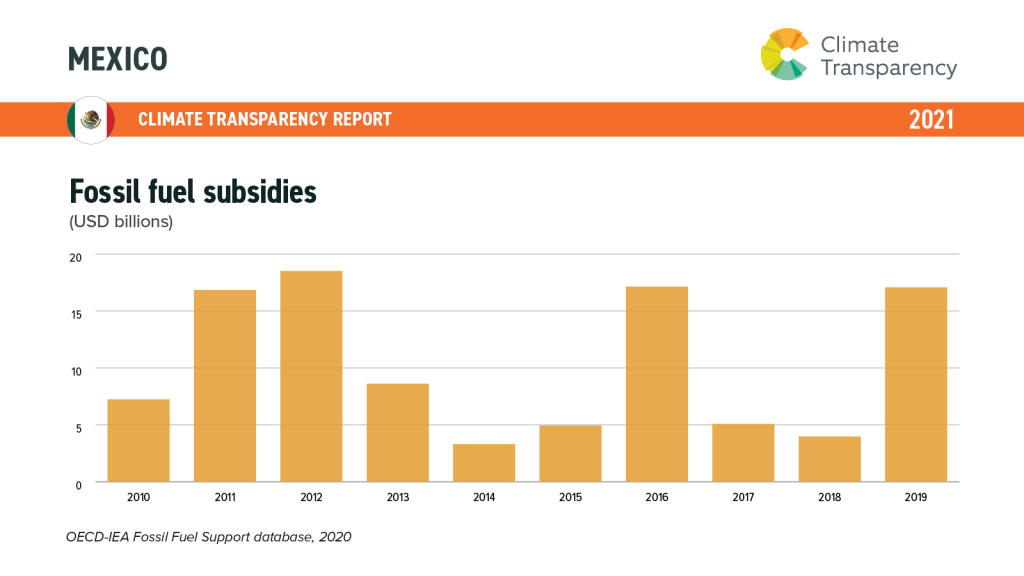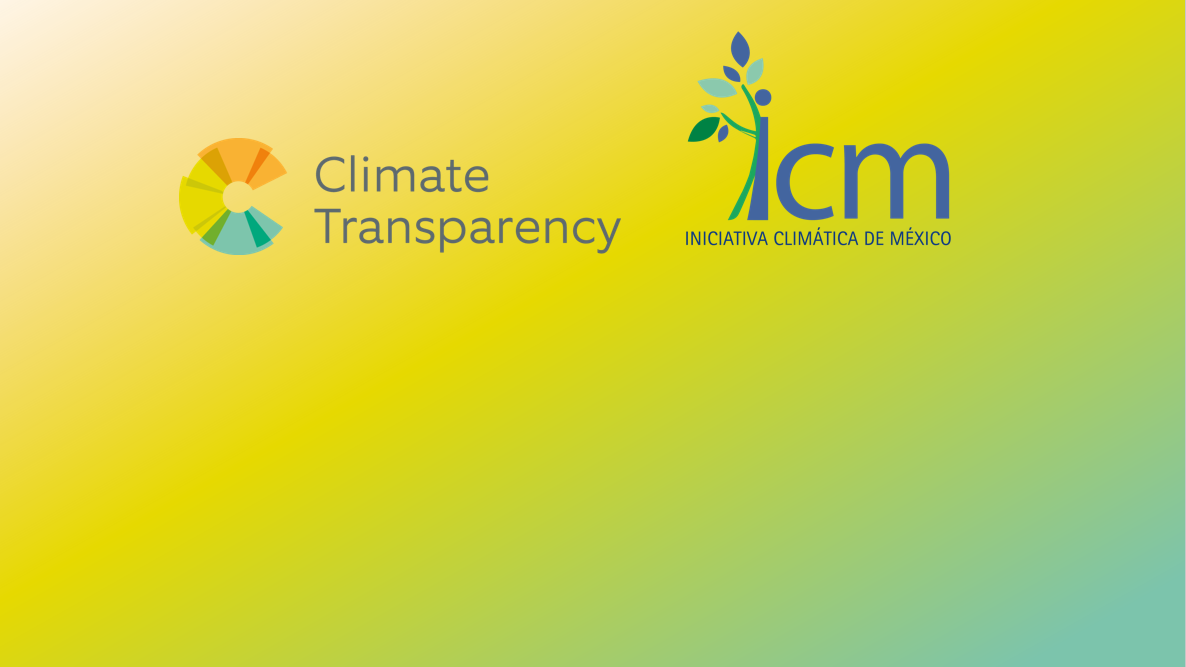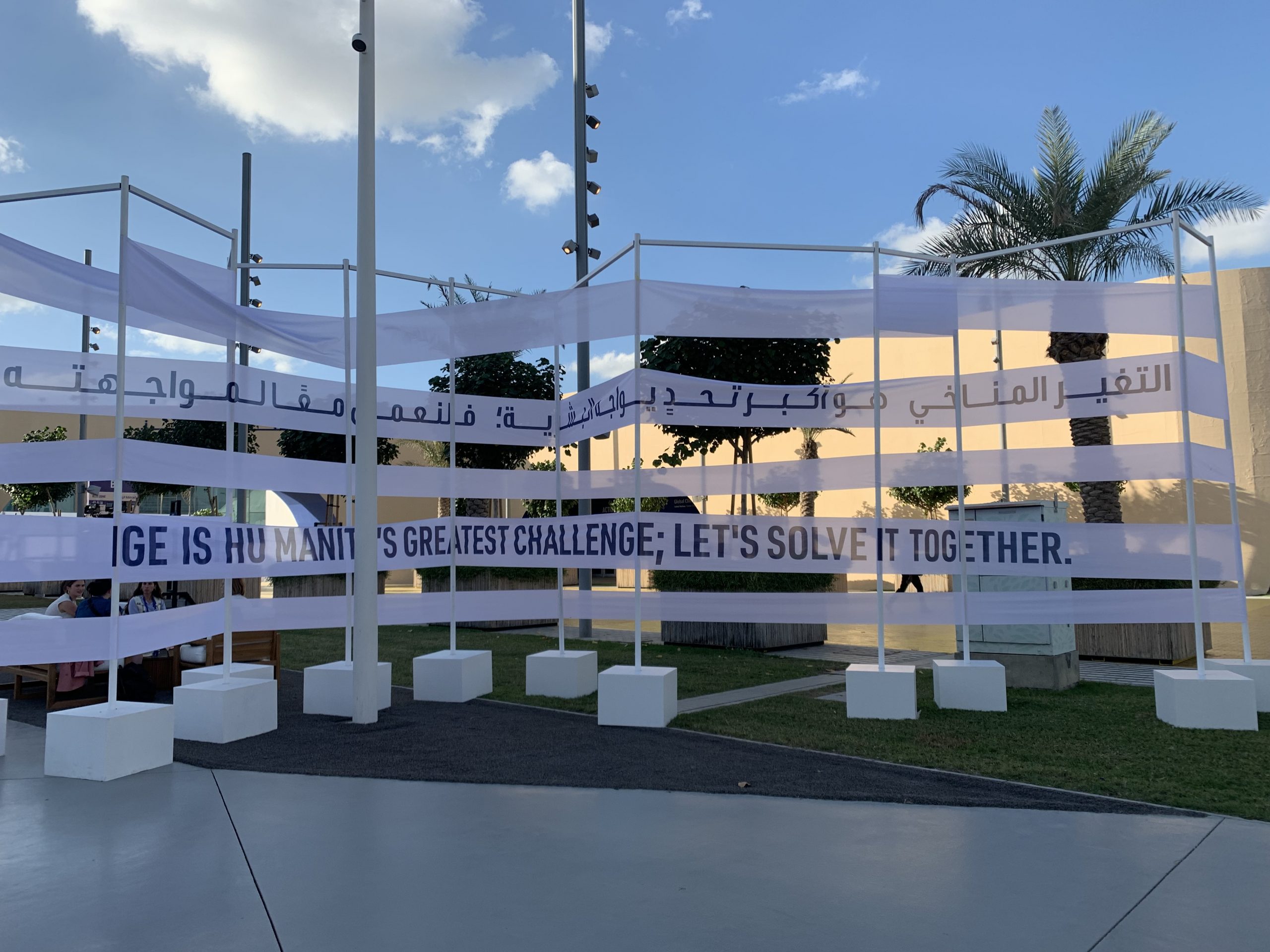On 14 December 2021 the Mexican partner of Climate Transparency, Iniciativa Climática de México (ICM), organised the online event entitled “A fair coal phase-out – a needed dialogue for Mexico, Chile and South Africa“ to share key findings of the recently published policy paper “Energy Transition in Mexico: A fair coal phase-out for a Paris compatible scenario in Mexico”. The policy paper identifies coal phase-out as a priority measure for Mexico to meet climate change commitments and points out social, economic and environmental impacts of the coal sector in Coahuila, Mexico’s main coal-producing region.
During the event, the current status and opportunities for a just transition in Mexico, Chile and South Africa were presented. Rafael Fonseca and Mariana Gutiérrez from ICM, Florencia Ortúzar from Interamerican Association for Environmental Defense (AIDA), Jesse Burton from Energy Systems Research Group (ESRG), and Naín Martínez from El Colegio de México attended the online seminar as speakers.
Jorge Villarreal, founder and director of Climate Policy at ICM, gave the introductory words, remarking: “COP26 became a political landmark. Critical climate commitments precede the global discussion on emissions reductions, and recently the debate on coal phase-out has gained increasing international relevance. While different stakeholders – including governments and the private sector – are making ambitious commitments in this regard, we can not separate this process from the social dimension; we need to enhance dialogue with local communities to learn about their needs”.
During an interactive part of the event, the audience was asked to point out priority elements to accelerate a fair coal phase-out. The development for a plan that incorporates clean alternatives to diversify the local economy and a plan for environmental remediation and health impacts from the coal industry were identified as particularly important. Afterwards, the three panelists from Mexico, Chile and South Africa discussed the current state and opportunities of a fair coal phase-out in their countries.
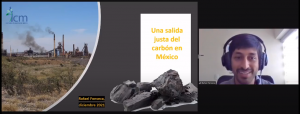 Rafael Fonseca, expert for climate justice at ICM, commented on Mexico’s need to address the country’s coal-dependent energy sector and its weak and unambitious climate policies. Despite the urgency of accelerating coal phase-out, the process must be part of a participatory, informed, open and transparent dialogue for those who live in the Coahuila region.
Rafael Fonseca, expert for climate justice at ICM, commented on Mexico’s need to address the country’s coal-dependent energy sector and its weak and unambitious climate policies. Despite the urgency of accelerating coal phase-out, the process must be part of a participatory, informed, open and transparent dialogue for those who live in the Coahuila region.
Florencia Ortúzar, expert at the climate change program at AIDA, explained that in Chile, despite the decarbonisation agreement, no plan has been developed to ensure an effective coal phase-out, and there is strong criticism that no elements such as equity or transparency have been considered. Chile faces the challenge of moving towards decarbonisation without relying on natural gas as a transition fuel.
Jesse Burton, researcher from ESRG in South Africa, explained that 74% of South Africa’s energy is generated from coal, which is more than double the G20 average of 31%. Furthermore, 90% of coal production and 70% of coal power plants in the country are located in Mpumalanga, a region in eastern South Africa, where unemployment levels are above the national average, and particularly high in youth unemployment rate (58.7%) and for young women (66.5%). The government of South Africa already established a commission to develop a working group focused on a fair coal phase-out strategy with communities and syndicates. The central question for South Africa’s case is, at what pace the energy transition will take place.
Naín Martínez, researcher at El Colegio de México, concluded that the discussion on coal phase-out is becoming a central aspect of international discussions such as COP26 and G20 negotiations and is seen as a key measure to reach the 1.5°C target. Several countries have taken steps in this direction, although they have yet to incorporate approaches of social justice, transparency and human rights. He pointed out that the comparison of different countries is highly valuable for the process of transition and mutual learning.
In the case of Mexico and South Africa, for example, coal production is concentrated in one particular area of the countries where they face similar social, economical and environmental problems. In contrast, the coal industry in Chile is spread throughout the country, but NGOs and civil society in Mexico and Chile face the same difficulties in establishing discussions with coal companies. Among the critical next steps that should be considered to accelerate the coal phase-out in the three countries is the implementation of remediation plans for socio-environmental liabilities of coal mining and industry.
To learn more about concrete steps that have been taken towards a just transition away from coal in Mexico, Chile and South Africa, you can watch the recording of the event here: https://www.youtube.com/watch?v=vBisjQBTMMA


